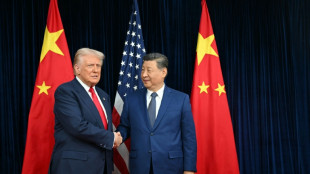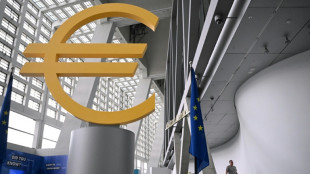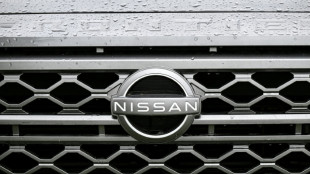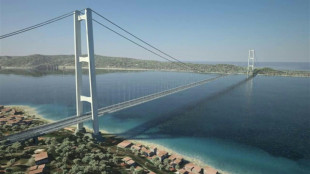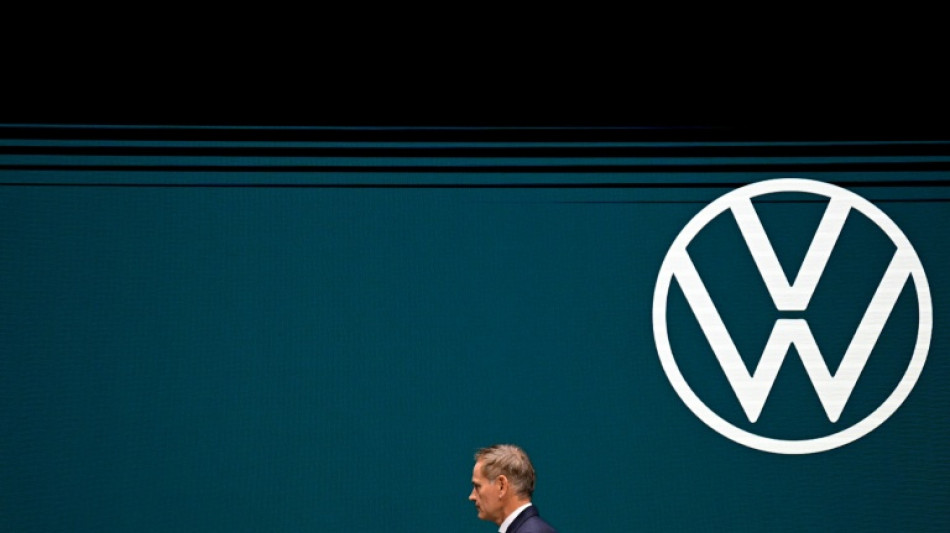

Volkswagen posts 1-billion-euro loss on tariffs, Porsche woes
Volkswagen reported its first quarterly loss for five years Thursday, topping one billion euros, as the German auto giant struggles with US tariffs and a troubled electric shift at subsidiary Porsche.
The loss in the July-to-September period amounted to 1.07 billion euros ($1.24 billion) and was the first suffered by Europe's biggest carmaker since the second quarter of 2020, when it was hit by the coronavirus pandemic.
The 10-brand manufacturer, whose models range from Skoda to Seat and Audi, warned that US President Donald Trump's tariff blitz was costing it five billion euros on an annual basis.
"The result is much weaker compared to the same period last year," Volkswagen finance boss Arno Antlitz said. "Higher tariffs, adjusting the product strategy at Porsche and write downs to Porsche's value cost 7.5 billion euros."
It is the latest bad news for VW and the wider German auto industry, and reflects broader problems for traditional manufacturers in Europe's struggling top economy.
Beyond tariffs and the slower than expected shift to electric cars, fierce competition in key market China has hammered German manufacturers and their suppliers.
- Porsche problems -
Long the jewel in Volkswagen's crown, Porsche in recent years has become a headache for the wider group amid intense pressure from local competitors in China and weak demand for electric sports cars that lack the thrill of noisy petrol engines.
Volkswagen in September warned of a bumper 5.1-billion-euro hit to its core profit for the year after Porsche cut profit targets and said it would carry on selling petrol vehicles for longer than previously planned.
Volkswagen absorbed costs from Porsche's move and also wrote down the value of its shares in the Stuttgart-based sportscar-maker.
The automotive giant is also dealing with US tariffs on car exports from the European Union, subject to a tariff of 15 percent under an EU-US deal unveiled late July.
That is down from an earlier level of 27.5 percent, but still far higher than the 2.5 percent in force before Trump launched his trade war in April.
The carmaker -- which has a plant in Tennessee -- also has to grapple with US duties on car parts imported from outside North America.
Antlitz said Volkswagen had achieved a "creditable" result, excluding tariff and Porsche-related costs.
"But the burden of tariffs will remain," he said. "It is not really appropriate to exclude it from the calculation."
Despite the net loss, revenues grew by 2.3 percent to 80.3 billion euros, helped by a slight increase in vehicle sales globally.
- New man at the wheel -
Even before Trump unleashed his tariffs, VW was struggling.
The group struck a deal with unions last December to cut 35,000 jobs by 2030, mostly at its namesake brand, as part of wider plans to save 15 billion euros a year.
Group brands Audi and Porsche have also slashed thousands of jobs. Porsche told workers in a July letter that further cost cuts lay ahead, warning that its business model "no longer works in its current form".
The firm in October named ex-McLaren boss Michael Leiters as its new CEO effective January 1, 2026, taking over from Oliver Blume -- who also heads up the wider Volkswagen Group.
With both companies in crisis, some unions and investors had criticised Blume's dual role, accusing him of being a "part-time boss".
G.Pololani--HStB



